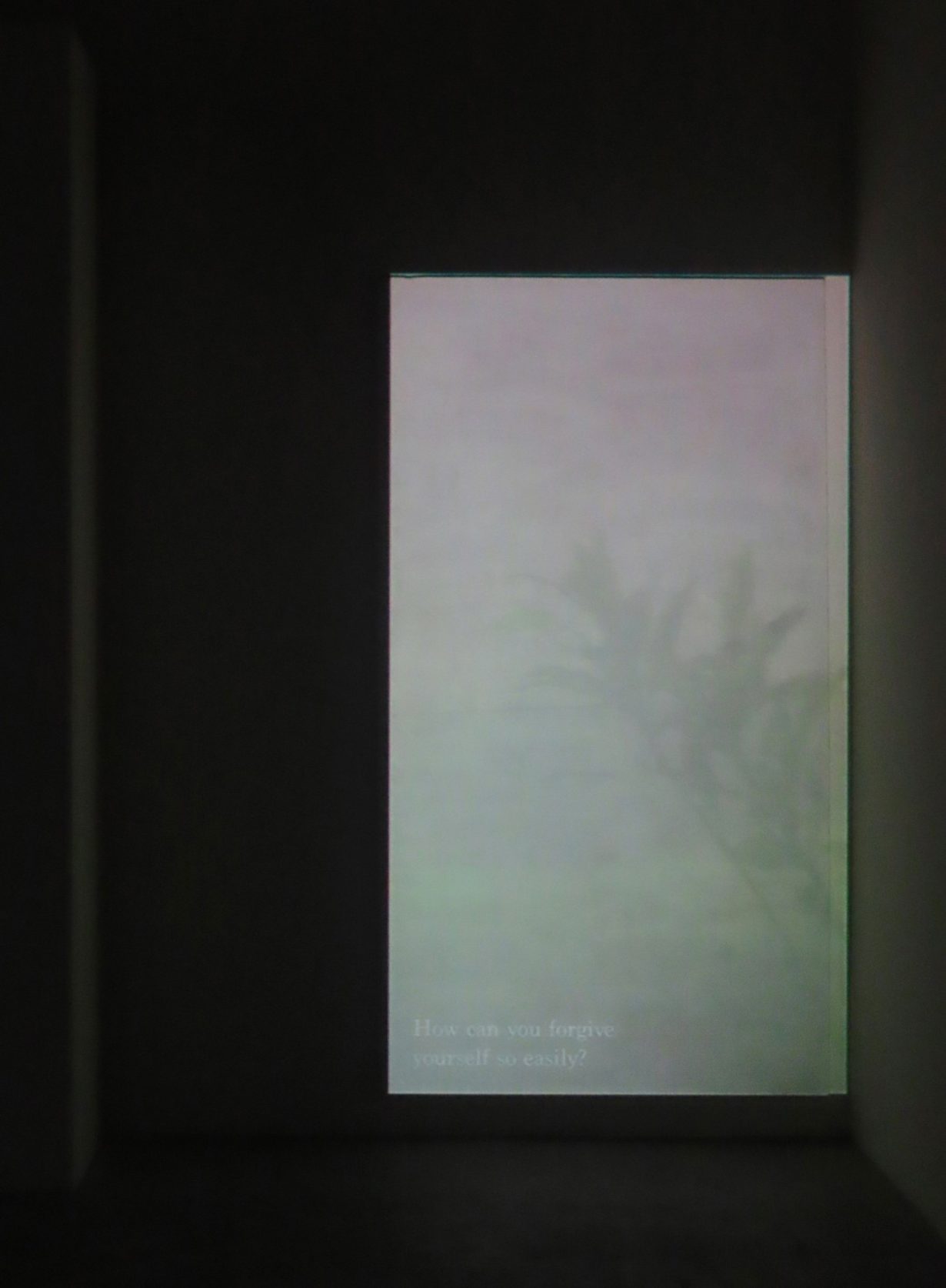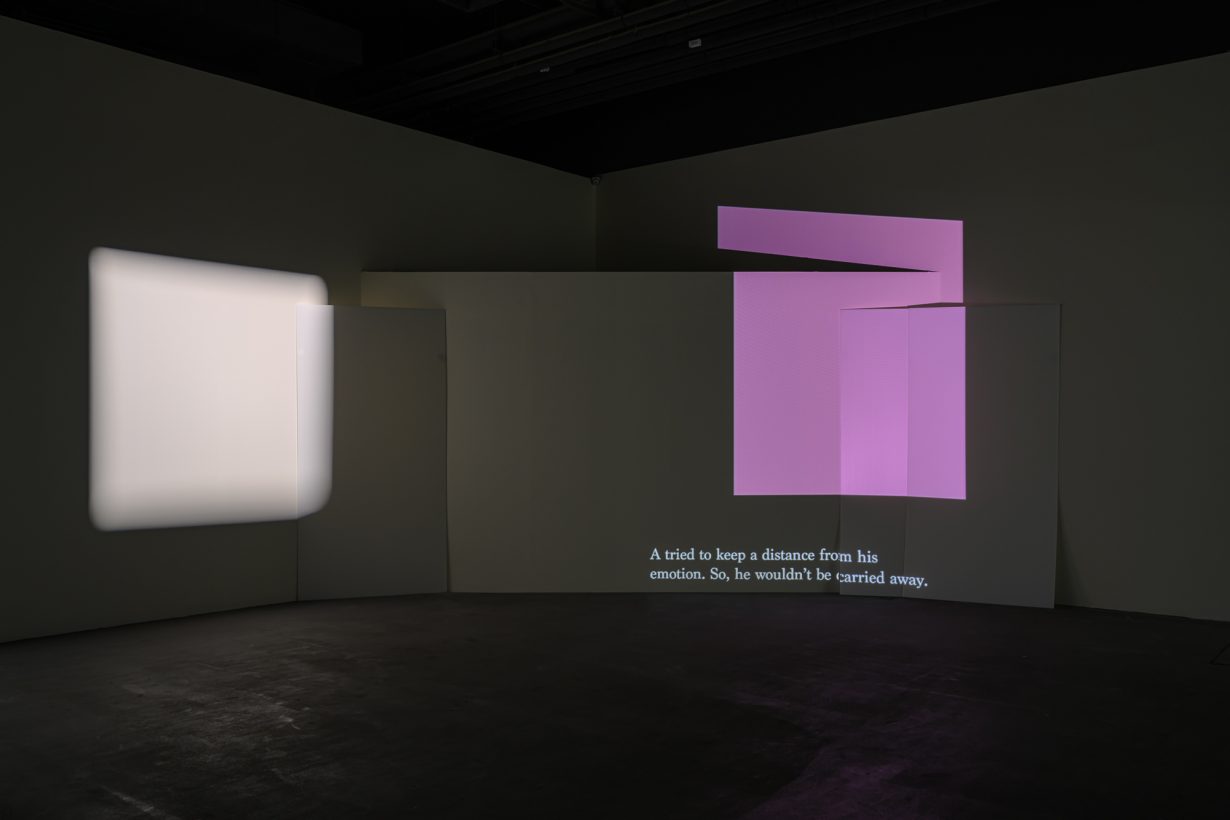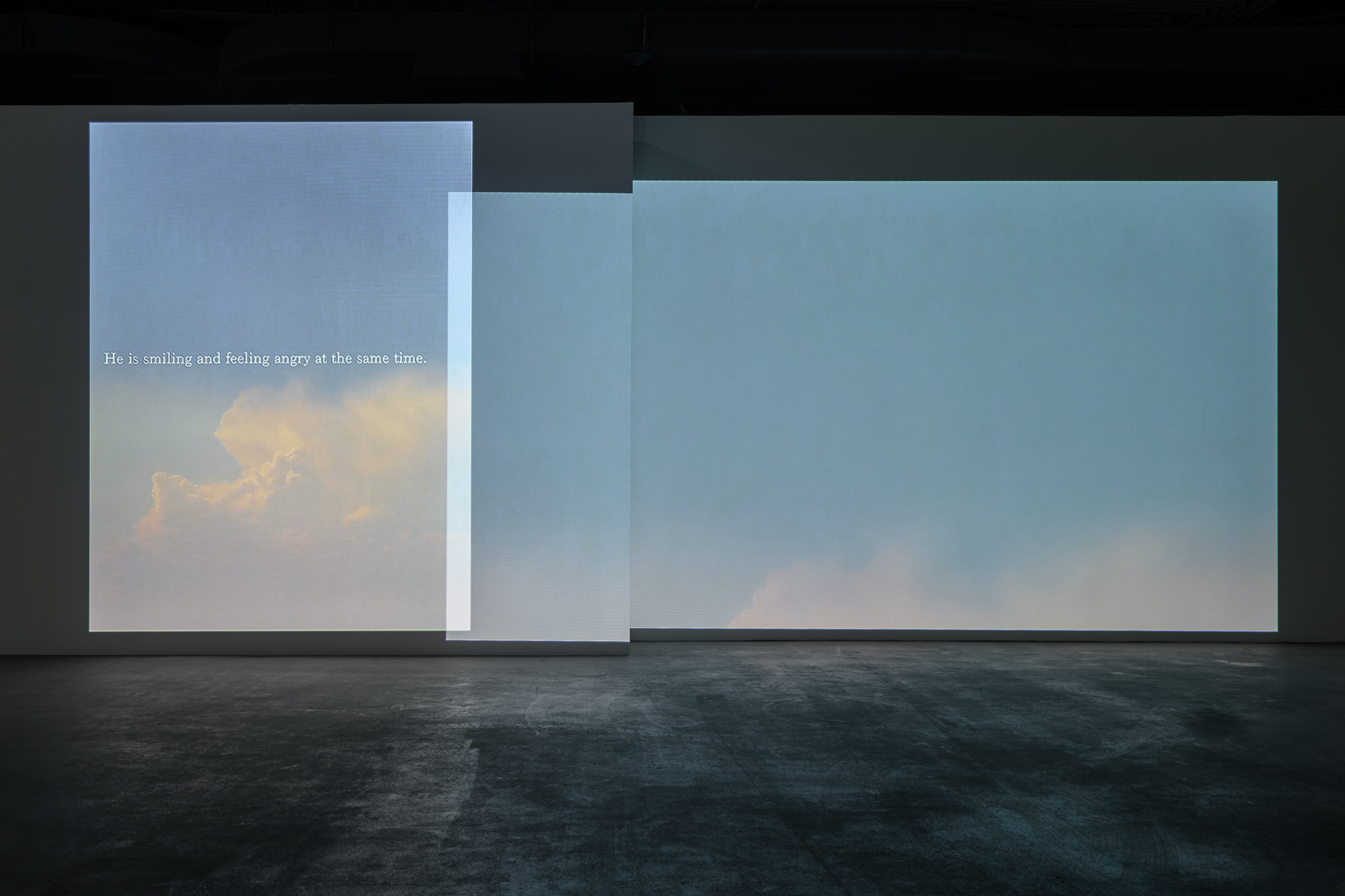The artist’s lingering outlines hint at the politics of looking and being looked at
Blue skies teeming with clouds are projected onto the subterranean walls; music swells with the brassy optimism of big-band jazz. This is another iteration of Lee Kit’s signature immersive bricolage, a series of subtle paintings on cardboard blending into the cracks between light-and-airy floor-to-ceiling projections. However, in the subtitles that add narrative to many of the sweeping videoworks, a burgeoning frustration asserts itself. ‘How can you forgive yourself so easily?’ wonders the voice in Plant (all works but one 2023). These texts accent otherwise atmospheric vistas with stories that feel particularly character driven. An alphabetised cast of everymen mingle, muse and judge among themselves – their mundane aspersions colouring the tone of the room, revealing the transformative effect a mood can have on the nature of an object.
The projectors in the gallery’s otherwise stark basement are installed across the floor, alone and in cliques. Panes of morning-blue and sunset-red collide with reels of cloud. Visitors creep between beams of light as if minding shoulders at a cocktail party, wary of causing shadowy intrusions. But the presence of the human and its consequences can’t be avoided: silhouettes of onlookers inevitably make cameos against Lee’s expanses of cloud and examinations of furniture; while coffee-drinking, PowerPoint-prepping characters populate Lee’s texts. In the video Cloud talks (II), a cloud-gazing character named ‘B’ shifts his focus to the bystanders ‘babbling’ nearby. B projects annoyance at what he sees as their loud, boastful arrogance, and describes them as dissolving into ghostliness, like clouds transforming in the breeze. Lee’s vague text leaves it up in the air whether this disgust is political or simply a petty social gripe.

Seeing our own looming outlines among the projected images invites viewers to project as well. Becoming entangled in Lee’s lingering studies of a simple chair or a ball of fluff, which subtly shapeshift on the walls, we notice the way the intimate proximity of our gaze seems to sculpt the reality of an object. Our impressions gather and solidify in the proffered objects and images, and in the gaps between them, like dust in the cracks between couch cushions. Similar to B’s chorus of ghosts, Lee’s approach to image-making highlights how these objects are always altered in the process of being perceived.
This attention to accumulation is emphasised by the material elements of Lee’s arrangements. In Every face of you, transparent tape laminates the wall behind footage of a chair. As the light of the projector aggregates in the folds and wrinkles of the carefully applied plastic, it becomes a near-solid, an almost sculptural texture over the surface of the image; a transformation illustrative of the parallel way that a mood, too, may become a material within Lee’s spaces. Accumulation is also at work in Lee’s four small paintings, scattered on the walls between his projections. Roughly folded pieces of cardboard are washed with white housepaint and imprinted with images that feel as familiar as newspaper clippings. Blame others. (2022) depicts a woman undergoing a gua sha treatment, appearing as if torn straight from the classifieds, and fixed in the corner of Lee’s noticeboard-style composition. The paintings accrue a sense of heft – like a stack of letters holding court on a kitchen table – building up the lived-in lustre of domestic things.

Of all the images gathered throughout The Last Piece of Cloud, it is the titular cumulonimbus mass that looms largest. As Lee’s projectors dapple the walls with the fluffy plumes and turrets of ever-shifting clouds, for his characters the lesson becomes clear. According to the exhibition text, one character considers the rest: ‘All three of them look at the cloud not far in the sky, thinking actually of each other’. Clouds lapse in and out of meaningful configurations, becoming a ship, a creature, a familiar face as we require it of them. Lee’s work takes these transformations at face value. They are a reminder that the objects and people we gather around us are also sculpted by our looking, their forms contoured by the everyday politics – or perhaps just stubborn annoyances – that lurk within our gaze.
The Last Piece of Cloud at TKG+, Taipei, 11 February – 22 April
